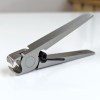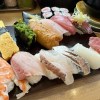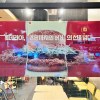
From elementary school all the way through high school, Japanese kids are required to study the convoluted subject of English as a second language. It’s an enormous struggle for many, as Japanese natives must familiarize themselves with not only the vocabulary and grammar points, they must adjust their ears to pick up on the plethora of sounds that do not exist in their mother tongue. To top it all off, when the existence of various English accents is brought to light, their brains can become confused even further.
A recent post on a Japanese message board asked people to list the differences between British English and American English. The comments extended far over 100. Here’s what some of the respondents had to say.
The differences between English accents aren’t always quantifiable, especially when understood through the filter of a different language. Those that are quantifiable were listed off exhaustively. Many of the people who responded to the online question focused in on differences in spelling and commonly used words. For example, color and colour, theater and theatre, elevator and lift, soccer and football, subway and underground. The list goes on and on.
Many other commenters made an effort to explain the differences in pronunciation as they understood them through a Japanese filter, keeping in mind that Japanese people have a difficult time hearing and denoting the sound of the letter R. To a Japanese person the word “water” spoken with an American accent sounds like “wa-daa,” while a British accent comes out sounding like “woh-ta.” The same is true for “better.” To a Japanese ear, an American accent comes across as “beh-daa,” and a British one sounds more like “beh’taa.”
Of course, there were some instances where differences between American and British English were mentioned, where in fact none exist! One person was under the impression that people speaking British English are more likely to ask, “Have you got a pen?” while Americans default to the phrase, “Do you have a pen?” I don’t know about the rest of you Americans, but if I’m speaking with other natives, I opt for the former. Another commenter made it sound as though the words “fall” and “autumn” are used exclusively in one country over the other, though I know that in America that these two are wholly interchangeable.
In the end though, things like spellings and region-specific vocabulary do little to capture feelings associated with hearing different English accents. What I’d like to know are the impressions that Japanese people get when hearing different forms of English. So, here’s what some of the respondents had to say on that front.
- I get the impression that British pronunciation tends to stay more faithful to the spelling.
- British English is like a Kansai accent, while American English is like standard Japanese.
- ^ You’ve got that backwards.
- I feel like British English is crisper.
- It’s like, British English *laughs* where American English would have LOL’d.
- Isn’t it that British English is easier for Japanese people to understand?
- I did a 3-year study abroad in America, but for the most part I still can’t understand British English. I feel as though American English is more spoken, while British English is more written.
- British: Just like we learned in middle school.
American: The T sound is strange. These examples may be extreme, but water becomes “woh-daa” and 20 is pronounced “tu-we-nee.” - ^ Most middle schools are taught American English.
- British English is hard to understand.
- British people often make American English sound idiotic.
- British people never lisp.
- Harry Potter is more like British English.
- ^ Harry Potter IS British English.
- Look up US vs. British on YouTube, and you’ll understand.
- British English is undoubtedly more refined.
- British English is nobler. It feels nice to listen to.
- I’d really like to learn British English, but because Japan is America’s lapdog, that not very likely huh…
- There are differences in stuff like pronunciation? How much they use the F-word?
Very astute observations all around! Some of them seem a little off, but I’ll leave it up to you guys to debate which points are closest to the truth.
Source: VIPPER na Ore
Image: RocketNews24

 How do you say ‘Google it, you trash’ in British English? Answer surprises many in Japan
How do you say ‘Google it, you trash’ in British English? Answer surprises many in Japan Blind Filipino girl Elsie stuns with her mature singing voice【Videos】
Blind Filipino girl Elsie stuns with her mature singing voice【Videos】 What’s wrong with English education in Japan? Pull up a chair…
What’s wrong with English education in Japan? Pull up a chair… Japanese Internet sad to see the word “chikan” becoming commonly used in English
Japanese Internet sad to see the word “chikan” becoming commonly used in English The science behind why English speakers can’t pronounce the Japanese “fu”
The science behind why English speakers can’t pronounce the Japanese “fu” Foreigner’s request for help in Tokyo makes us sad for the state of society
Foreigner’s request for help in Tokyo makes us sad for the state of society Japanese city loses residents’ personal data, which was on paper being transported on a windy day
Japanese city loses residents’ personal data, which was on paper being transported on a windy day Red light district sushi restaurant in Tokyo shows us just how wrong we were about it
Red light district sushi restaurant in Tokyo shows us just how wrong we were about it Ghibli Park now selling “Grilled Frogs” from food cart in Valley of Witches
Ghibli Park now selling “Grilled Frogs” from food cart in Valley of Witches Smash Bros. director Sakurai stabs Kirby in the face, has delicious justification for it
Smash Bros. director Sakurai stabs Kirby in the face, has delicious justification for it Suntory x Super Mario collaboration creates a clever way to transform into Mario【Videos】
Suntory x Super Mario collaboration creates a clever way to transform into Mario【Videos】 Expensive Japanese nail clippers: Are they worth it?
Expensive Japanese nail clippers: Are they worth it? Randomly running into a great sushi lunch like this is one of the best things about eating in Tokyo
Randomly running into a great sushi lunch like this is one of the best things about eating in Tokyo Advice from Japanese women on dealing with your boyfriend’s anime girlfriend
Advice from Japanese women on dealing with your boyfriend’s anime girlfriend We tried Korea’s way-too-big King Tonkatsu Burger at Lotteria 【Taste Test】
We tried Korea’s way-too-big King Tonkatsu Burger at Lotteria 【Taste Test】 McDonald’s new Happy Meals offer up cute and practical Sanrio lifestyle goods
McDonald’s new Happy Meals offer up cute and practical Sanrio lifestyle goods Japanese ramen restaurants under pressure from new yen banknotes
Japanese ramen restaurants under pressure from new yen banknotes French Fries Bread in Tokyo’s Shibuya becomes a hit on social media
French Fries Bread in Tokyo’s Shibuya becomes a hit on social media Studio Ghibli releases new action figures featuring Nausicaä of the Valley of the Wind characters
Studio Ghibli releases new action figures featuring Nausicaä of the Valley of the Wind characters New private rooms on Tokaido Shinkansen change the way we travel from Tokyo to Kyoto
New private rooms on Tokaido Shinkansen change the way we travel from Tokyo to Kyoto Tokyo Tsukiji fish market site to be redeveloped with 50,000-seat stadium, hotel, shopping center
Tokyo Tsukiji fish market site to be redeveloped with 50,000-seat stadium, hotel, shopping center Beautiful Ghibli sealing wax kits let you create accessories and elegant letter decorations【Pics】
Beautiful Ghibli sealing wax kits let you create accessories and elegant letter decorations【Pics】 Studio Ghibli releases Kiki’s Delivery Service chocolate cake pouches in Japan
Studio Ghibli releases Kiki’s Delivery Service chocolate cake pouches in Japan New definition of “Japanese whiskey” goes into effect to prevent fakes from fooling overseas buyers
New definition of “Japanese whiskey” goes into effect to prevent fakes from fooling overseas buyers Our Japanese reporter visits Costco in the U.S., finds super American and very Japanese things
Our Japanese reporter visits Costco in the U.S., finds super American and very Japanese things All-you-can-drink Starbucks and amazing views part of Tokyo’s new 170 meter-high sky lounge
All-you-can-drink Starbucks and amazing views part of Tokyo’s new 170 meter-high sky lounge More foreign tourists than ever before in history visited Japan last month
More foreign tourists than ever before in history visited Japan last month New Pokémon cakes let you eat your way through Pikachu and all the Eevee evolutions
New Pokémon cakes let you eat your way through Pikachu and all the Eevee evolutions Disney princesses get official manga makeovers for Manga Princess Cafe opening in Tokyo
Disney princesses get official manga makeovers for Manga Princess Cafe opening in Tokyo Sales of Japan’s most convenient train ticket/shopping payment cards suspended indefinitely
Sales of Japan’s most convenient train ticket/shopping payment cards suspended indefinitely Sold-out Studio Ghibli desktop humidifiers are back so Totoro can help you through the dry season
Sold-out Studio Ghibli desktop humidifiers are back so Totoro can help you through the dry season Japanese government to make first change to romanization spelling rules since the 1950s
Japanese government to make first change to romanization spelling rules since the 1950s Ghibli founders Toshio Suzuki and Hayao Miyazaki contribute to Japanese whisky Totoro label design
Ghibli founders Toshio Suzuki and Hayao Miyazaki contribute to Japanese whisky Totoro label design Doraemon found buried at sea as scene from 1993 anime becomes real life【Photos】
Doraemon found buried at sea as scene from 1993 anime becomes real life【Photos】 Tokyo’s most famous Starbucks is closed
Tokyo’s most famous Starbucks is closed One Piece characters’ nationalities revealed, but fans have mixed opinions
One Piece characters’ nationalities revealed, but fans have mixed opinions We asked a Uniqlo employee what four things we should buy and their suggestions didn’t disappoint
We asked a Uniqlo employee what four things we should buy and their suggestions didn’t disappoint Princesses, fruits, and blacksmiths: Study reveals the 30 most unusual family names in Japan
Princesses, fruits, and blacksmiths: Study reveals the 30 most unusual family names in Japan Japanese people reveal the six western foods they find most disgusting
Japanese people reveal the six western foods they find most disgusting “We wasted so much time in English class” — Japanese Twitter user points out major teaching flaw
“We wasted so much time in English class” — Japanese Twitter user points out major teaching flaw Japanese elementary school student teaches us all how to pronounce English like a native speaker
Japanese elementary school student teaches us all how to pronounce English like a native speaker Japanese anime girl virtual YouTuber also speaks perfect English!【Video】
Japanese anime girl virtual YouTuber also speaks perfect English!【Video】 7 things Japanese people in international marriages wish they’d known before tying the knot
7 things Japanese people in international marriages wish they’d known before tying the knot Dark Horizon textbooks go beyond “Hello my name is…” to “Who are you calling a bitch, bitch!”
Dark Horizon textbooks go beyond “Hello my name is…” to “Who are you calling a bitch, bitch!” Japanese Twitter users surprised to learn that “Yoko Ono-ing” is a verb in English
Japanese Twitter users surprised to learn that “Yoko Ono-ing” is a verb in English Japanese beer giant Asahi buys British London Pride brewery; U.K. writer hopping mad
Japanese beer giant Asahi buys British London Pride brewery; U.K. writer hopping mad RocketNews24’s six top tips for learning Japanese
RocketNews24’s six top tips for learning Japanese Keisuke Honda apologises for English mistake at press conference 【Video】
Keisuke Honda apologises for English mistake at press conference 【Video】 Japanese condiment company Kikkoman encourages Brits to desecrate white rice with tasty sauce
Japanese condiment company Kikkoman encourages Brits to desecrate white rice with tasty sauce Be careful how you talk about “spaghetti” in Japanese — you may sound unhip
Be careful how you talk about “spaghetti” in Japanese — you may sound unhip English conversation school in Japan has clever reminder that students don’t have to be perfect
English conversation school in Japan has clever reminder that students don’t have to be perfect Top 10 most irritating Japanese borrowed words – Part 2 (The people’s top 10)
Top 10 most irritating Japanese borrowed words – Part 2 (The people’s top 10) Westerners in Japan – do they really ALL speak English? 【Video】
Westerners in Japan – do they really ALL speak English? 【Video】
Leave a Reply